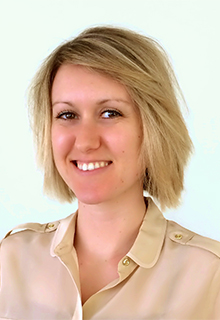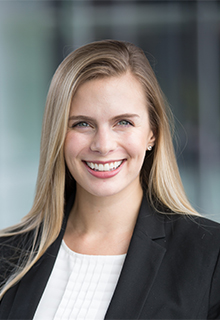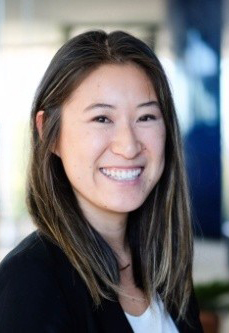Yale SOM Team Wins Health x Design Challenge
Members of the school’s Design and Innovation Club won the contest with their concept for an apartment building that promotes shared communal spaces and intergenerational living as a means of combatting urban loneliness.
A Yale School of Management team won the recent 2019 Health x Design Challenge with their project, Culdesac, an innovative, urban, midrise apartment living concept.

The team included Sarah Graf ’20 and two alumnae of the joint-degree MBA and MPH programs at Yale SOM and Yale School of Public Health, Bella Steiner ’19 and Sarah Weng ’19. The Design Challenge contest is sponsored by the Robert Wood Johnson Foundation and hosted by the Mad*Pow Center for Health Experience Design, a purpose-driven strategic design consultancy that serves as a hub of connection and collaboration in the evolving healthcare field.
The Yale SOM team learned of the Challenge last May and was immediately drawn to the opportunity to apply business school and design thinking lessons to a meaningful project, the team members said. All three shared a passion for health, and Graf and Weng served as leaders of the Yale SOM Design and Innovation Club.
“So much of healthcare is focused on how to get the individual to make better life decisions, like how to get people to stick to a diet or decide to exercise more,” Weng said. “This was a chance to flip the narrative and design systems that make healthy choices easy.”

After interviewing friends and family, the three decided to focus on addressing the problem of loneliness in urban living, which they saw as a growing issue, especially among young professionals. They worked on the project over the summer, while Graf was interning at Beacon Health Options in Boston, and Steiner and Weng were traveling and settling into post-graduation life in California.
“We met via Zoom for multiple brainstorming sessions and collaborated through the design process virtually,” Graf said. Their own new living arrangements in new cities inspired them to imagine a co-living option that could allow families and individuals to live in a communal setting while also respecting the need for privacy and autonomy. “Our central question was, ‘How do you make co-living attractive to average citizens?’” Graf said.

Weng said that she was inspired by the challenge of innovating in the housing space: “How we live and work is changing, but how homes are structured has not fundamentally evolved to keep up.”
Culdesac redesigns the midrise urban apartment building by using shared meals as a catalyst for regular interactions between neighbors, by proposing technology that allows residents to adjust physical spaces to changing lifestyles and needs, and by promoting intergenerational connections.
Steiner said that the project made her appreciate the education she received at Yale SOM and at the Yale School of Public Health, in a very practical way.
“The contest presented an opportunity to test our newfound skills,” she said. “We were tasked with innovating in a structured way, to build a system that would make healthy living easier. Yale SOM and YSPH prepared us with every skill we needed to produce an idea that we take pride in, and that caught the attention of an impressive panel of judges. I walk away feeling empowered to continue applying these skills for the rest of my career.”
The team will present Culdesac at the Health Experience Design Conference in April 2020.



